【聯合聲明】讓綠能在對的地方發展、肯定國產署撤回高生態爭議國有地開發
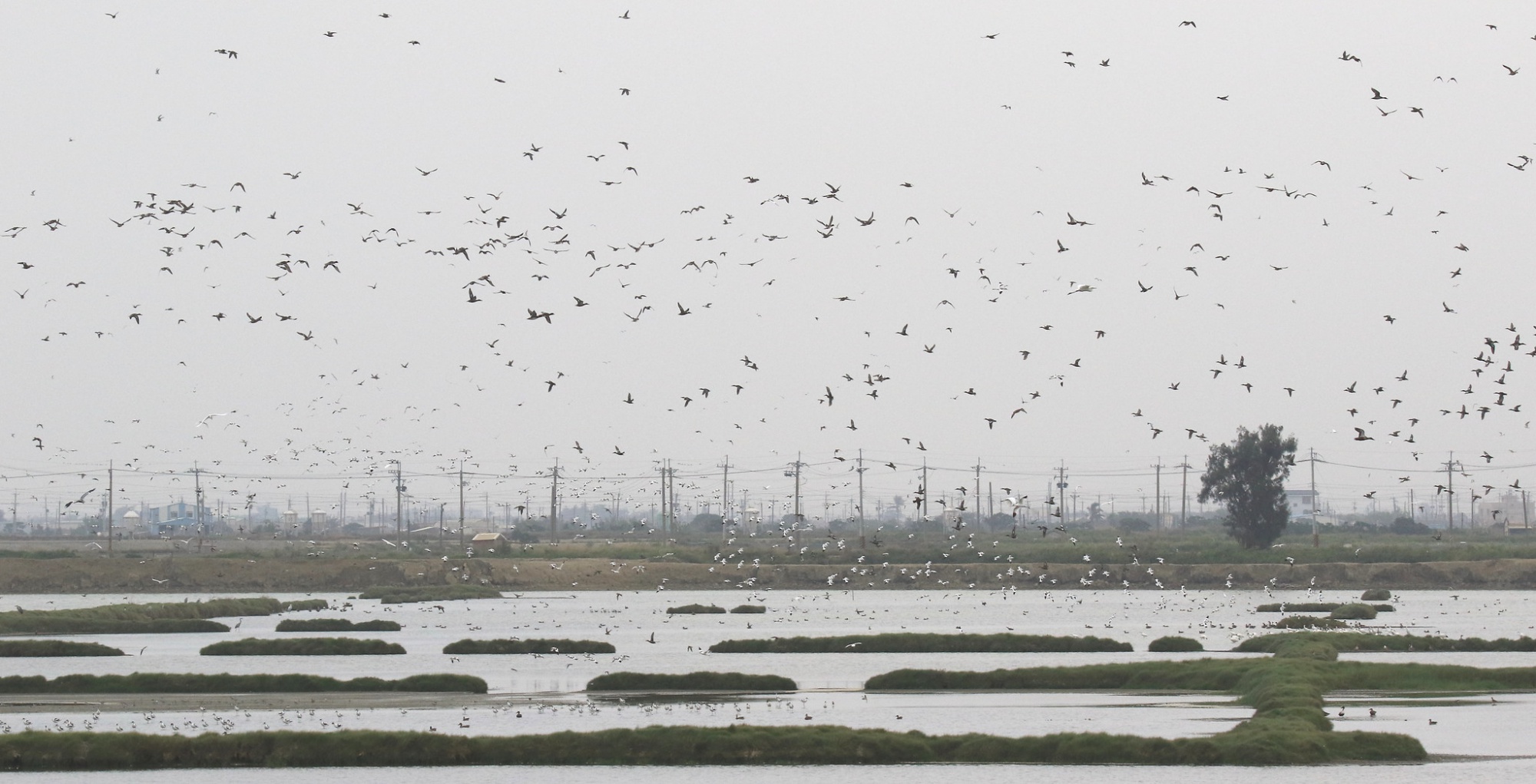
嘉義布袋水鳥群/呂翊維 攝
日前中華鳥會等民間團體及眾多學者聯合反對台南將軍鹽田光電開發案(10/15 聯合聲明),財政部國有財產署乃於10月30日邀請經濟部能源局、農委會特有生物研究保育中心及民間團體一同研商。國產署針對特生中心盤點為高生態爭議區的嘉義、台南鹽業用地,決議不再同意提供設置太陽光電,撤銷台南將軍案場的開發同意書並無息退還保證金。我們肯定國產署採積極態度應對並重視生物多樣性價值,不僅讓成千上萬水鳥的度冬棲地獲得保存,更落實行政院兼顧環境永續與能源轉型的綠能發展方針。
嘉義、台南鹽田濕地是重要的遷徙水鳥度冬及過境棲地,在數量和種類上都是台灣具代表性的生態熱區,更是黑面琵鷺、諾氏鷸等多種瀕危物種重要棲地。因此,農委會特生中心盤點嘉義、臺南鹽田在地生態資料,建立高、中、低生態爭議的圖層供行政院參考,在106年「太陽光電兩年推動計畫」會議中,行政院便裁示光電開發須迴避高生態爭議區。這次台南將軍光電案場爭議,凸顯出106年行政院決議並未帶到國產署,導致國產署轄下位在嘉義、台南高生態爭議的鹽田公有地,除了將軍鹽田,仍有足足21件光電申請案在排隊受理中。
所幸國產署積極應對,確定駁回嘉義布袋與台南七股將軍的高生態爭議區之申請案,撤銷將軍鹽田的申請開發同意書;其次,在保育團體已認養的國有土地,未來亦不同意設置太陽光電;另未來若有土地已核發光電業者提供申請開發同意書案件,也會在網站公開土地標示,供民眾查詢。
我們再次強調,國家的綠能發展不應建立在犧牲重要自然環境之上,光電開發必須建立在優先迴避爭議區為最大前提,其次才是縮小規模、減輕措施及補償計畫等步驟。我們欣見經濟部與農委會正視當前光電開發把關機制的不足,積極建立「環境與社會檢核機制」,可望透過科學評估與社會參與,協助綠能產業與生態及社會環境共創三贏的局面。而在環社檢核機制全面上路前,我們希望中央各部會與地方政府勿再核准任何有高生態爭議或社會不正義的綠能計畫。只要政府願意以開放、前瞻的態度來與社會溝通,中華鳥會等民間團體願意提供資訊與討論,協助國家綠能產業在對的地方加速發展。
聯合聲明團體:
中華民國野鳥學會、地球公民基金會、台灣黑面琵鷺保育學會、台南市野鳥學會、台南新芽協會、台灣猛禽研究會、高雄市野鳥學會、綠色公民行動聯盟、基隆市野鳥學會、荒野保護協會、新竹市野鳥學會、台灣石虎保育協會、苗栗縣自然生態學會、台東縣野鳥學會、美濃愛鄉協進會、花蓮縣野鳥學會、台北市野鳥學會、嘉義縣野鳥學會、宜蘭縣野鳥學會、桃園市野鳥學會、彰化縣野鳥學會、雲林縣野鳥學會、台灣濕地保護聯盟、屏東縣野鳥學會、台灣鳥類學會、台灣野鳥協會
聯合聲明學者:
東海大學生命科學系 林惠真終身特聘教授、國立臺灣師範大學生命科學系 李壽先研究講座教授、中央研究院生物多樣性研究中心 劉小如退休研究員、國立東華大學自然資源與環境學系 許育誠副教授 、國立成功大學生命科學系 李亞夫教授、國立臺灣師範大學生命科學系 許鈺鸚教授、國立成功大學生命科學系 許祐薰助理教授、國立臺南大學生態暨環境資源學系 許皓捷副教授
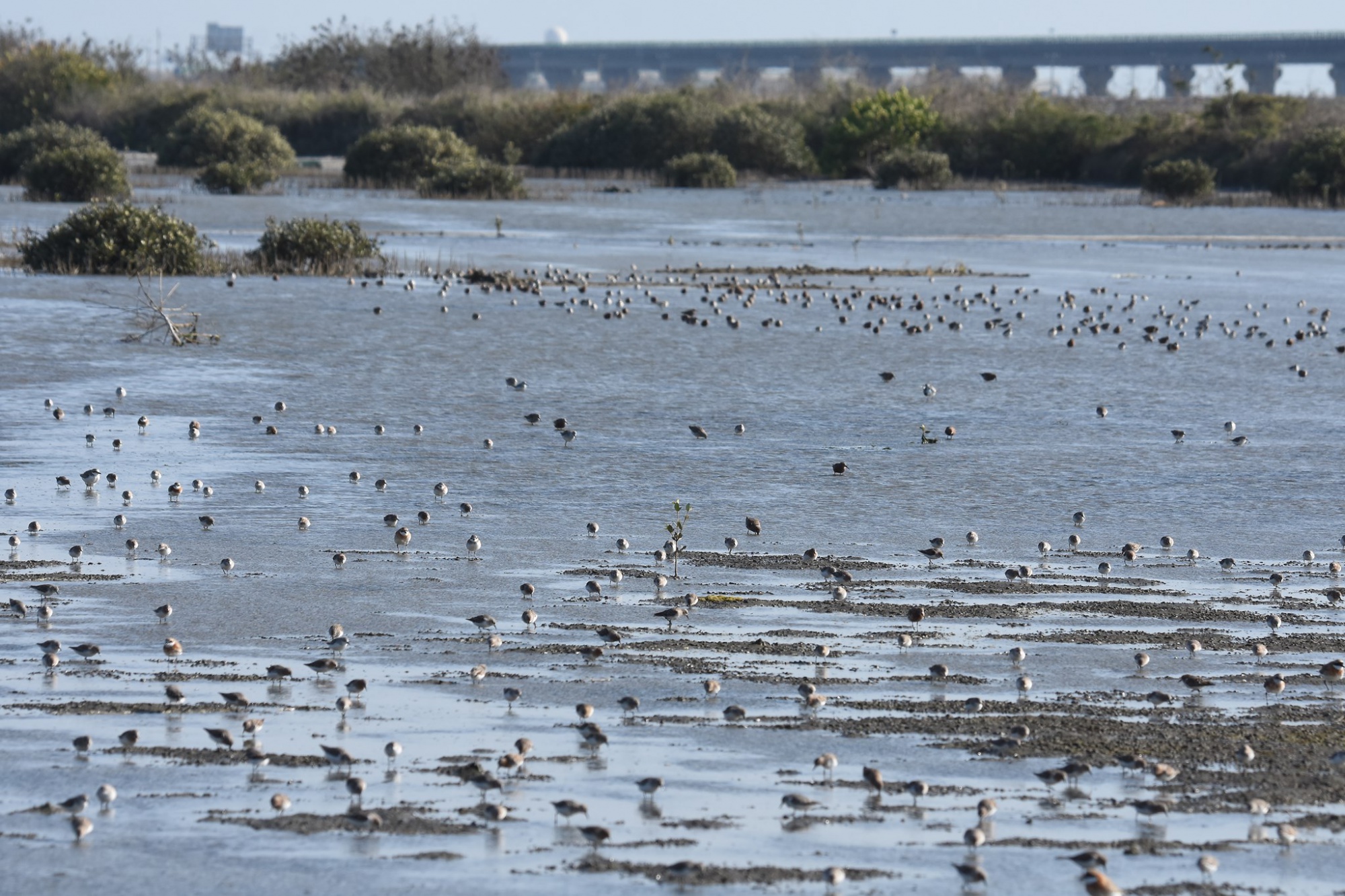
台南將軍水鳥群/林坤慧 攝
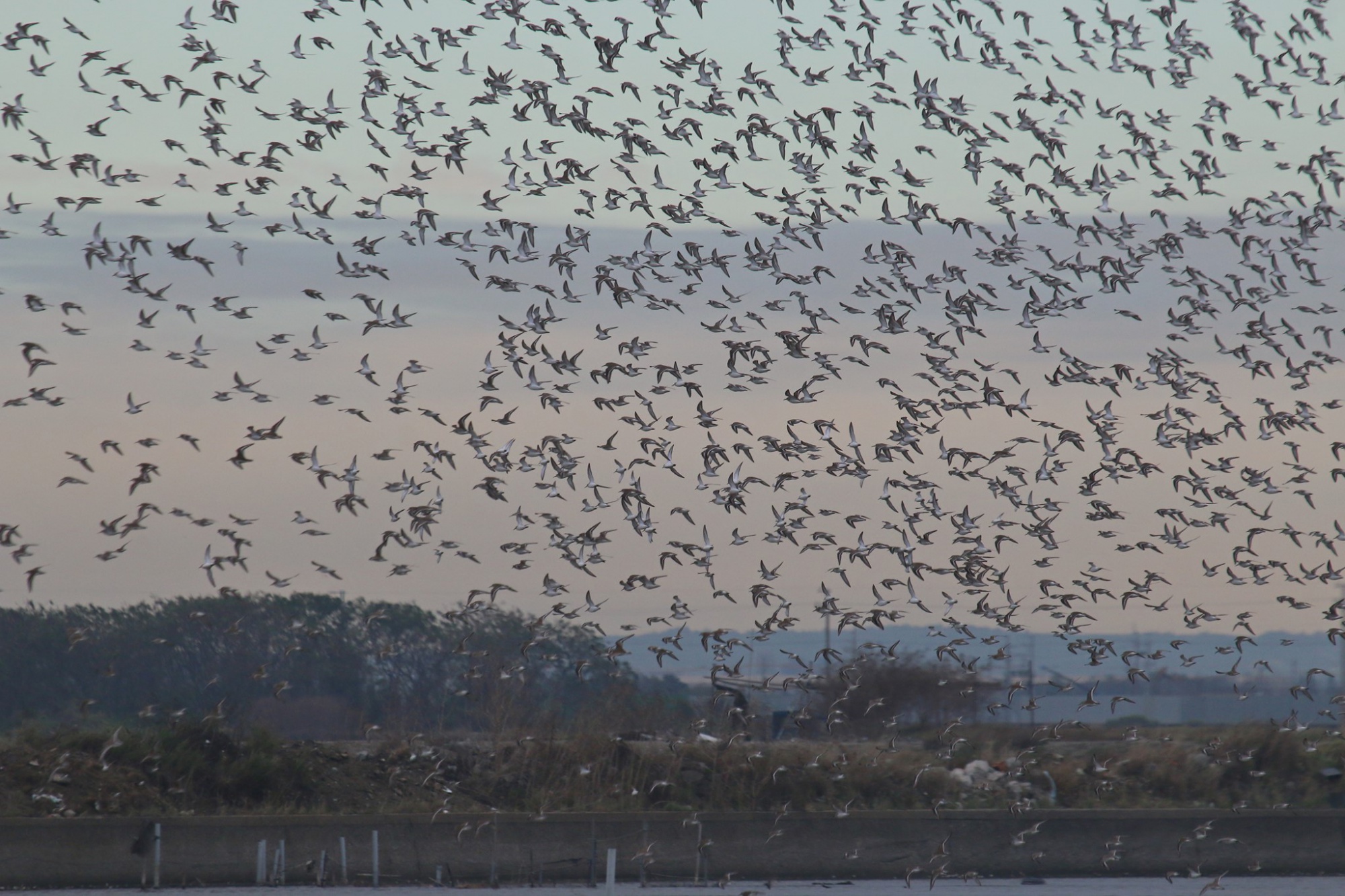
台南將軍水鳥群/李昱緯 攝
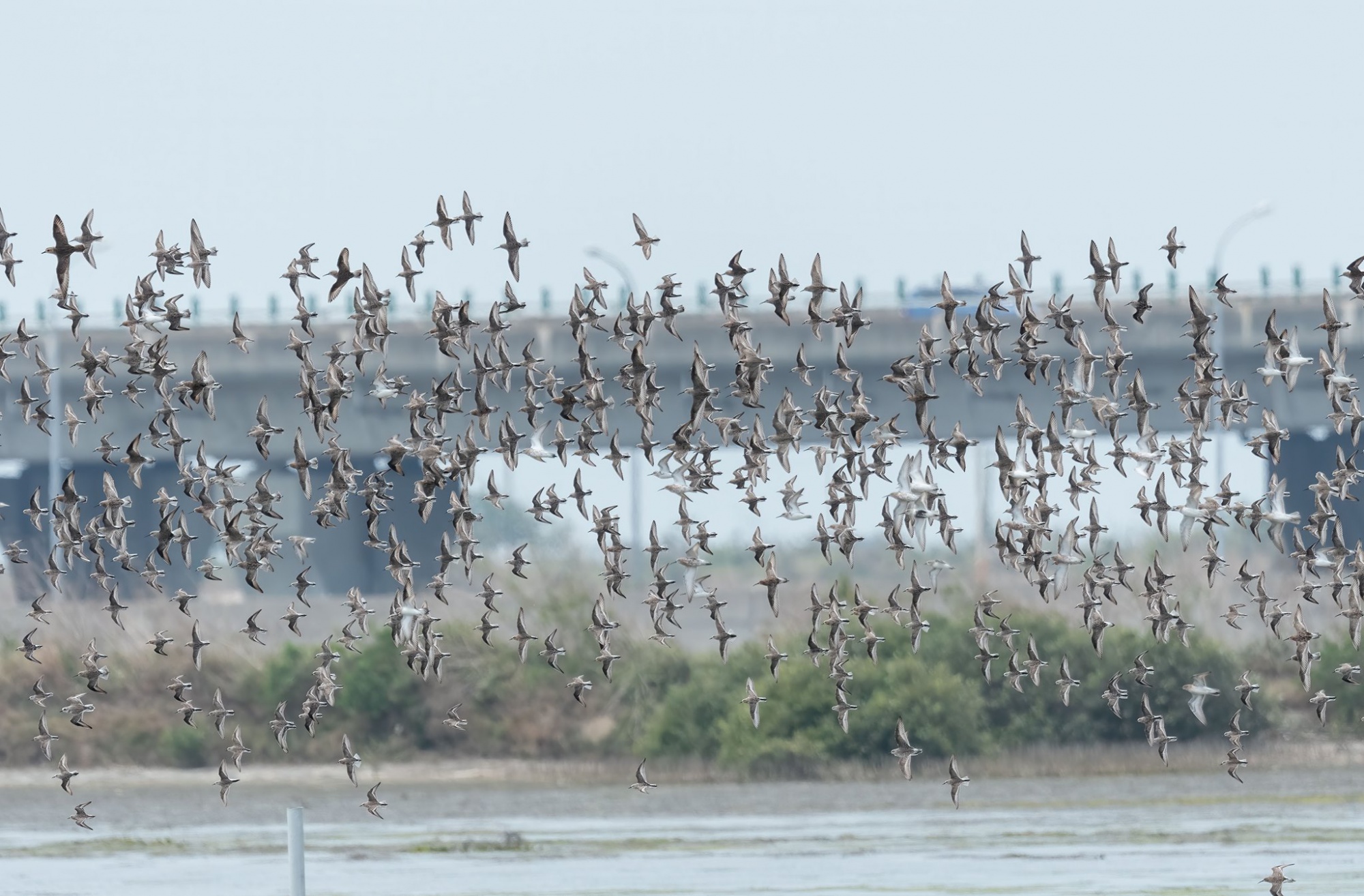
台南將軍水鳥群/何瑞暘 攝
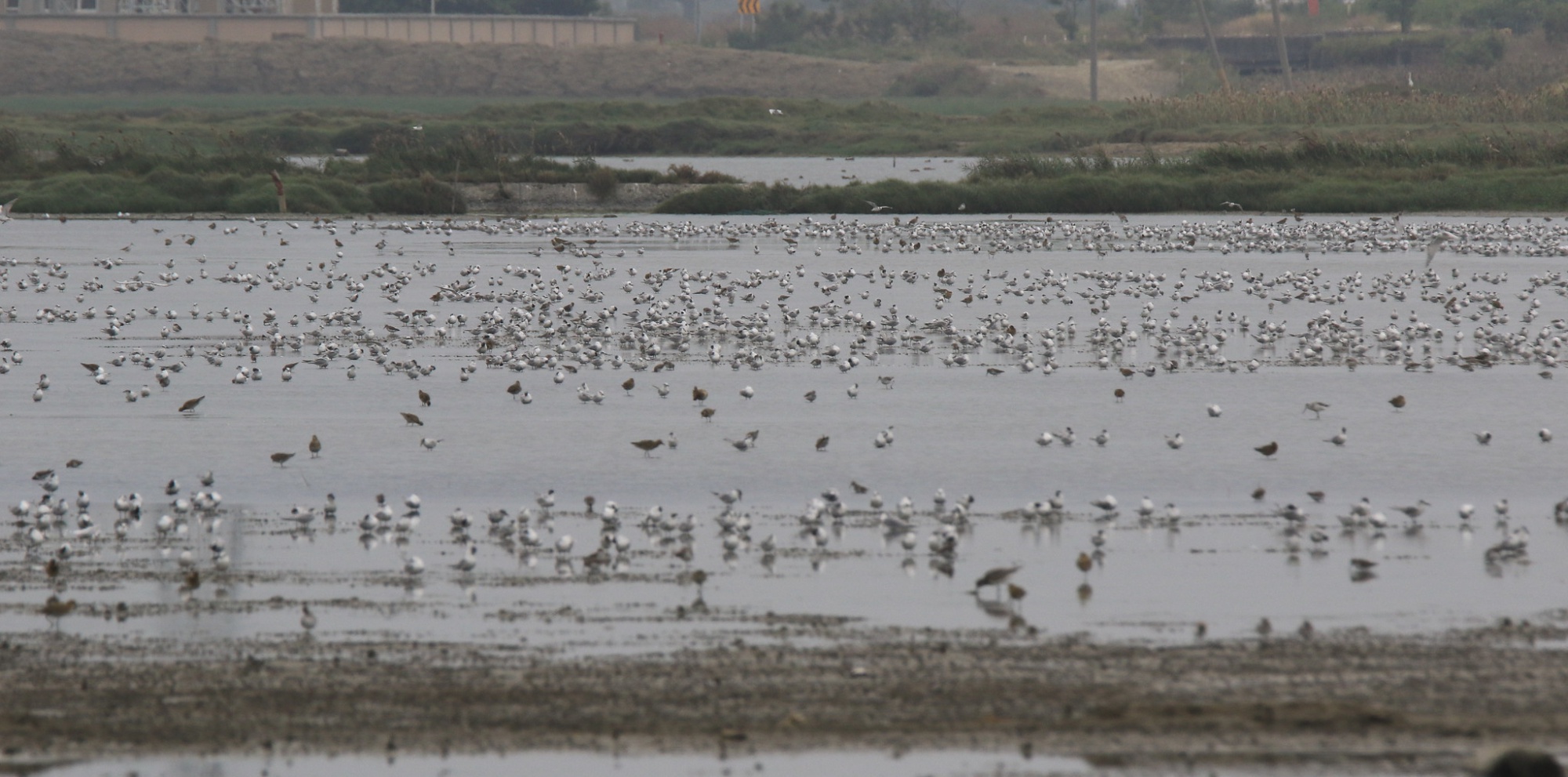
嘉義布袋水鳥群/呂翊維 攝
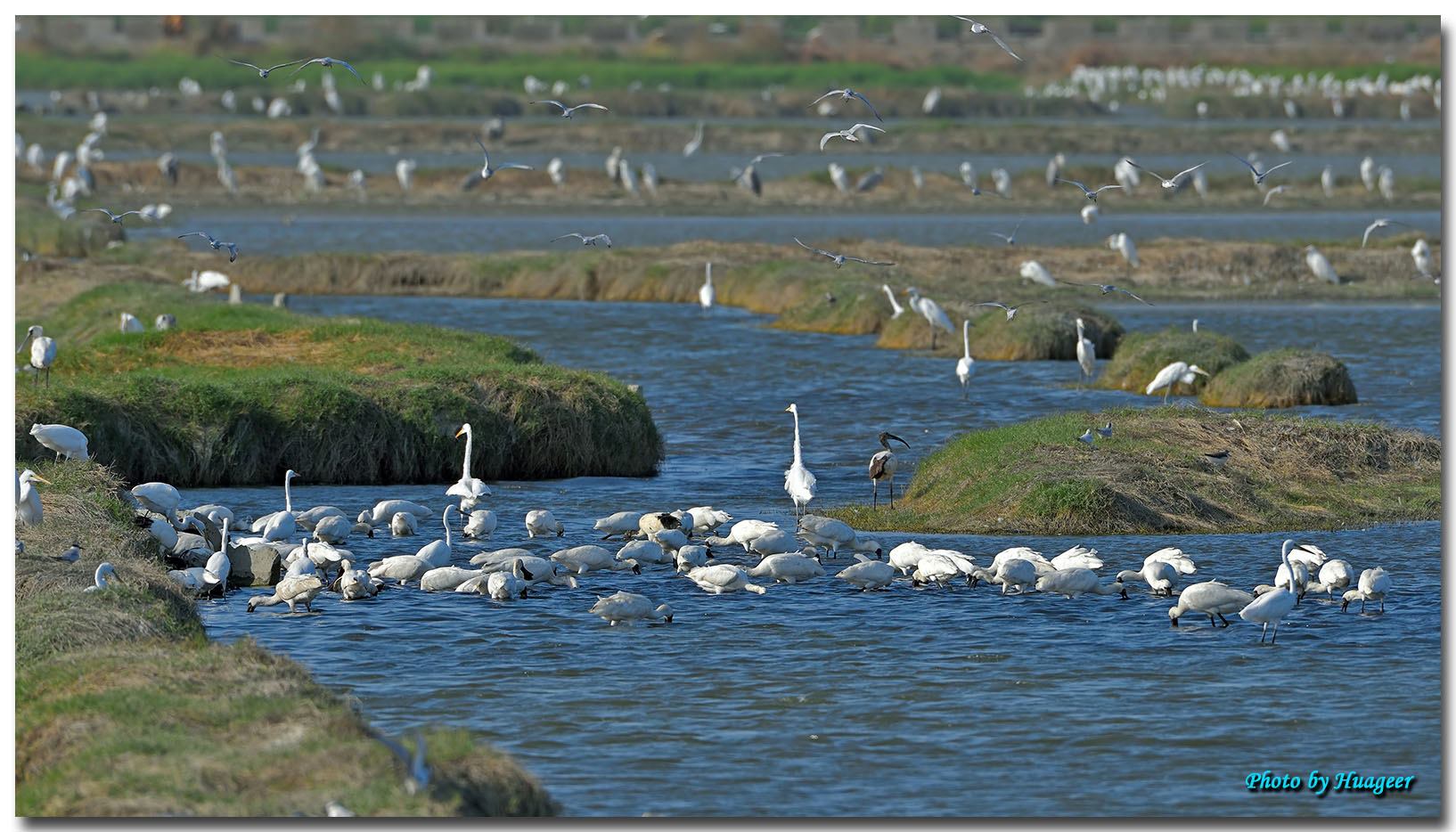
嘉義布袋-黑面琵鷺與其他水鳥群/陳建樺 攝

嘉義布袋-成群的黑腹燕鷗/陳建樺 攝
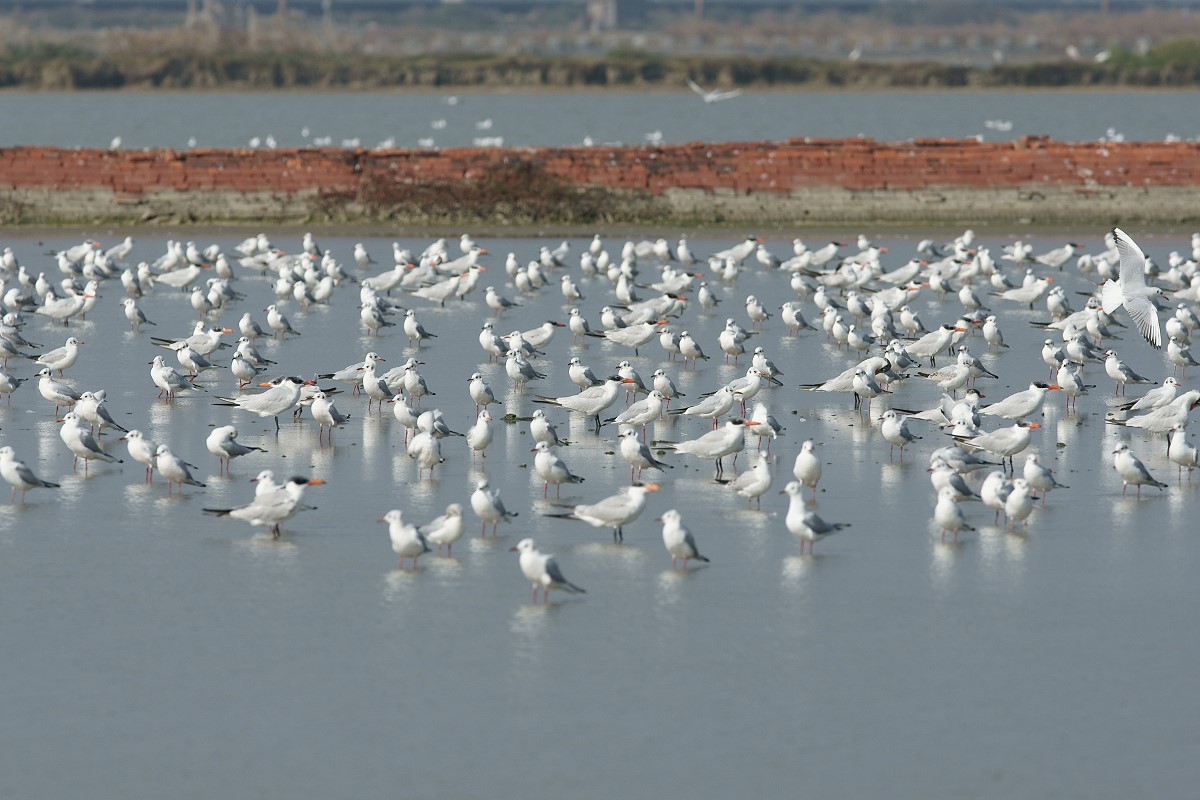
嘉義布袋-成群的鷗科鳥類/張瑞麟 攝
Joint Statement
Develop Green Energy in Appropriate Places
NGOs and Scholars Welcome the National Property Administration's Decision to Withdraw Plans to Develop Areas of High Ecological Sensitivity
Recently, the Taiwan Wild Bird Federation joined with other local civic organizations and numerous academics in opposition to the development of a photovoltaic solar farm in the vicinity of Tainan City's Jiangjun Saltpans (original joint statement here). In response to this, the National Property Administration (NPA) called a meeting with representatives of the Bureau of Energy under the Ministry of Economic Affairs (MOEA) and the Taiwan Endemic Species Research Institute (TESRI) under the Council of Agriculture (COA) as well as non-governmental organizations to discuss the matter. During the meeting, the NPA reconsidered areas formerly used for the salt industry in Chiayi County and Tainan City which TESRI now consider to be areas of high ecological sensitivity, later passing a resolution revoking permission to place photovoltaic installments in these areas. The NPA also withdrew its consent to further develop the Jiangjun Saltpans for solar farms and said the deposit for the project would be reimbursed without interest. The signatories of the initial joint statement welcome this proactive stance by the NPA for valuing and protecting biodiversity. This is not just because it will preserve the wintering habitat of thousands of waterbirds, but also because it shows that the Executive Yuan takes into account environmental sustainability while promulgating its green energy development policy.
The saltpans in Chiayi County and Tainan City are crucial habitat for wintering and transiting migratory waterbirds. In terms of both number of species and individuals, they represent ecological hot spots in Taiwan. They also serve as critical habitat for numerous globally threatened species such as the Black-faced Spoonbills and Nordmann's Greenshank. It was with this information in mind that TESRI, when doing an inventory of ecological resources in Chiayi County and Tainan City's saltpans, created a system establishing areas of low, medium, and high levels of disturbance in regards to development green energy projects for the Executive Yuan's reference. During the Executive Yuan's 2017 "Photovoltaic Energy Two-year Promotion Project" meeting, it was decided that photovoltaic development must avoid areas of high ecological sensitivity. The controversy surrounding the formerly proposed project at the Jiangjun Saltpans highlights that the 2017 decision was not brought to the attention of the NPA, which led to this situation. As a side note, aside from the case surrounding Jiangjun Saltpans, there are still 21 photovoltaic project applications waiting for review in the areas of Chiayi County and Tainan City.
Fortunately, the NPA has been proactive in its approach and has now determined that it will not allow for further development of photovoltaic projects at Chiayi's Budai Wetlands or the Jiangjun Saltpans in Tainan City's Qigu Area. They have also revoked prior consent for the development of a photovoltaic project initially given for the Jiangjun Saltpans. Furthermore, state-owned land which has already been adopted by conservation groups for its ecological importance will not be permitted for photovoltaic projects. Lastly, if there are areas where plans have already being drawn up to for placement of a photovoltaic farms in the future, the information will be placed online for public inquiry.
It should be reiterated that the country's green energy development should not be based on sacrificing important ecosystems and nature areas. While considering where to develop photovoltaic energy sites, the first consideration should be avoidance of areas with high ecological sensitivity, followed by steps to reduce impacts, create mitigation measures, and develop compensation plans. It is also a positive development that the MOEA and the COA are now facing up to the current lack of a review mechanism for potential sites with the establishment of an "Environmental and Social Review Mechanism". It is hoped that through scientific evaluation and the participation of local people, the green energy sector, our precious natural places, and society as a whole will be able to benefit. However, before the aforementioned environmental and social review mechanism is fully implemented, it is hoped that central government agencies and local governments will no longer approve any green energy projects that could negatively impact areas of high ecological sensitivity or lead to social injustice. As long as the government remains open and communicates in a transparent manner with the people, the TWBF and civil society as a whole will be more than willing to provide information and participate in talks to assist the national green energy industry in accelerating its development in appropriate locations.
